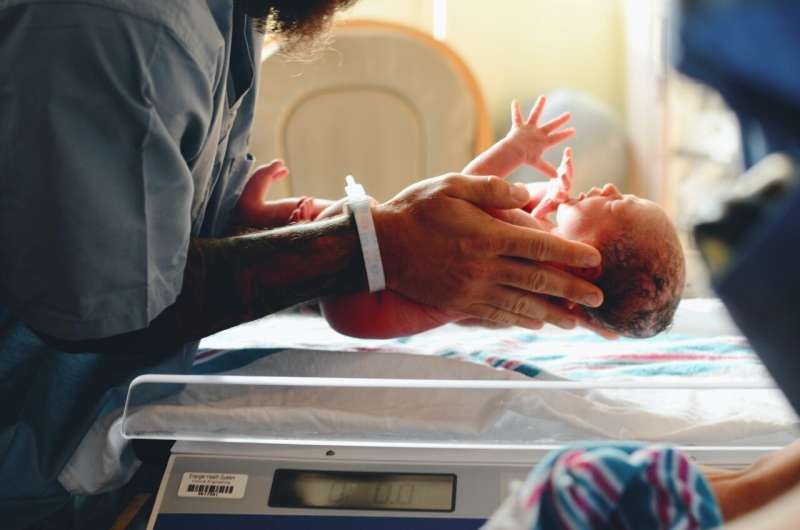Credit: Christian Bowen/Unsplash
While much remains unknown about the impact of COVID-19 on pregnancy, emerging data from a national surveillance project reveals pregnant women with COVID-19 seem to be at greater risk of being hospitalized, being admitted to intensive care units (ICUs), and going into early labor.
UBC's Dr. Deborah Money, professor in the faculty of medicine's department of obstetrics and gynecology, is leading the national project. In this Q&A, she explains what these early findings mean for pregnant women in Canada and how this pan-Canadian effort is helping inform clinical and public health guidelines during a rapidly evolving global pandemic.
What does the emerging data on COVID-19 and pregnancy reveal?
Dr. Deborah Money: Our preliminary findings—which provide a snapshot of maternal and infant outcomes from March 1 to Sept. 30, 2020—indicate that pregnant women with COVID-19 seem to be at greater risk of being hospitalized compared to non-pregnant women in their reproductive years.
There have been 2,143 recorded cases of COVID-19 in pregnancy to date in Canada, but when we analyzed our initial findings at the end of September, there were only 869 cases of pregnant women with COVID-19. Of these, 430 were analyzed from three provinces in Canada.
When we looked at available data on COVID-19 hospital admissions and care (353 cases), we found that 11 percent of these women were hospitalized due to COVID-19 and 2.4 percent were admitted to the ICU. As a point of reference, women between the ages of 18 and 45 in B.C. and Ontario with COVID-19 had a 1.7 percent rate of hospitalization and a 0.3 percent rate of ICU admission.
It's important to note that this is still early data, limited to cases from B.C., Alberta and Ontario, which represents approximately 60 percent of pregnancies in Canada. Our national research network, CANCOVID-Preg, will continue to report out on maternal and infant outcomes as more data from the provinces and territories becomes available, and these findings may change as the numbers increase and more provinces report their data.
Are babies born to women with COVID-19 being affected?
Current data suggests that COVID-19 is associated with an increased frequency of preterm births (before the 37th week of pregnancy). Our survey revealed 15 percent of babies born to women with COVID-19 in Canada were premature, which is approximately double the national average.
Encouragingly, we found that most infants (84 percent) were not admitted to the NICU, and of the infants tested for SARS-CoV-2, fewer than six were positive, suggesting transmission to infants is rare.
How do these early Canadian findings compare to what's happening globally?
Our data adds to the growing body of evidence emerging internationally that suggests pregnant women with COVID-19 have low absolute risk of severe illness but are at increased risk of severe illness compared to non-pregnant women of the same age range. Reports out of the United States, for example, indicate that pregnant women are at increased risk of admission the ICU and are also more likely to require ventilation.
How is this project informing clinical and public health recommendations for pregnant women?
This national project was initiated to improve our understanding of COVID-19 in pregnancy and provide critical data to inform recommendations for pregnant women and their infants.
This preliminary report, though from a limited number of pregnancies, is already helping inform public policy and guidelines for clinical care. National and provincial guidelines on COVID-19 are regularly being updated, and as Canadian data such as this emerges, guidelines will be considering this data in their recommendations.
Should pregnant women be prioritized for the COVID-19 vaccine?
At this time, COVID-19 vaccines have not been tested on or formally approved for use in pregnant women.
Provided by University of British Columbia
























